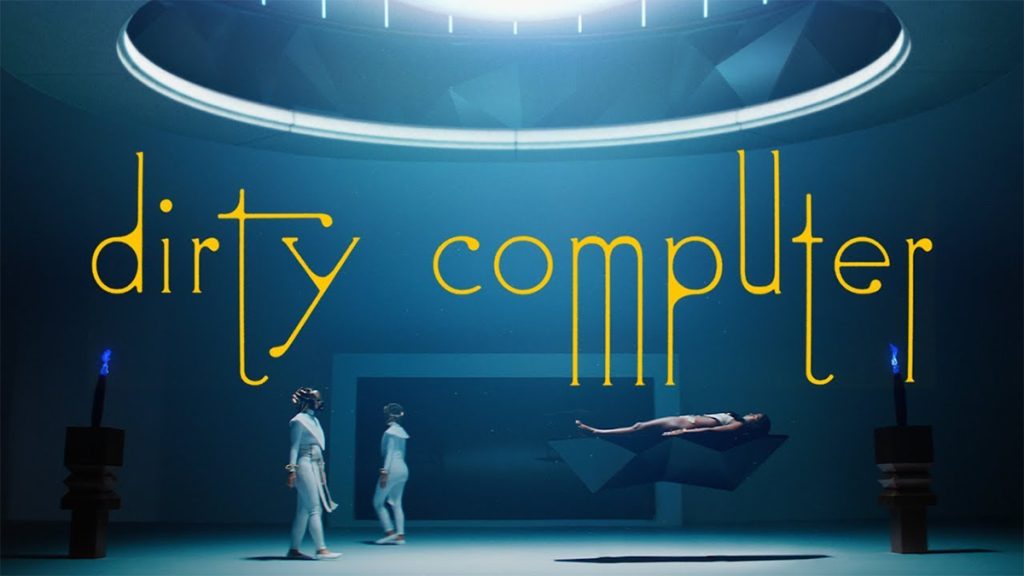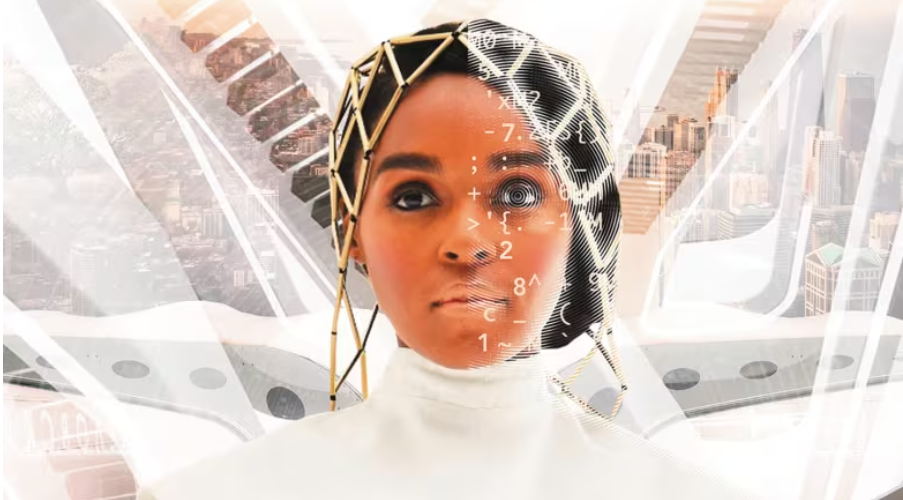
Haraway’s “Cyborg Manifesto” depicts a world that moves past limiting dualisms to a world that is post-gender. In this post-gender world, identity is fluid rather than restricted. Several of Haraway’s ideas can be seen in Janelle Monae’s album Dirty Computer.
Track 14, “Americans,” in Dirty Computer is a call for a post-gender world that is more just, more equitable, and where identity is fluid. The song touches on race, gender, and sexuality. It depicts a wish to move past traditional norms for a more just society where identity is fluid and not restricted to categorical norms. Some lyrics from the album include “I like my woman in the kitchen,” “A pretty young thang, she can wash my clothes / But she’ll never ever wear my pants,” “You see my color before my vision / Sometimes I wonder if you were blind / Would it help you make a better decision,” “Until same-gender loving people can be who they are / This is not my America,” and “Until black people can come home from a police stop without being shot in the head / This is not my America” (Monae, 2018). In the song “Americans,” Monae discusses the male/female dualism and the gender norms that come with it among other norms like race and sexuality. Females are expected to cook and clean, while men get to “wear the pants” in the relationship. Both Haraway and Monae want to move past these traditional norms to a more equitable society where identity can be fluid and is not forced to be confined to rigid traditional structures.
Track 10, “I Like That,” in Dirty Computer depicts an individual embracing a fluid identity and breaking away from traditional norms, which aligns with Haraway’s vision for a post-gender world where fluid identity thrives breaking past restricting society. Lyrics include “I’m always left of center and that’s right where I belong / I’m the random minor note you hear in major songs” “I don’t really give a **** if I was just the only one,” and “I never like to follow, follow all around” (Monae, 2018). Monae’s lyrics in “I Like That” depicts someone moving away from traditional norms instead of following them. Both Haraway and Monae picture a world where identity is fluid instead of being restricted to traditional norms, which leads to a more equitable and fair world.
References:
Katz-Wise, S. L. (2020, December 3). Gender fluidity: What it means and why support matters. Harvard Health Blog; Harvard Health Publishing. https://www.health.harvard.edu/blog/gender-fluidity-what-it-means-and-why-support-matters-2020120321544
Monae, J. (2018). Dirty Computer [Album]. Wondaland; Bad Boy; Atlantic.




